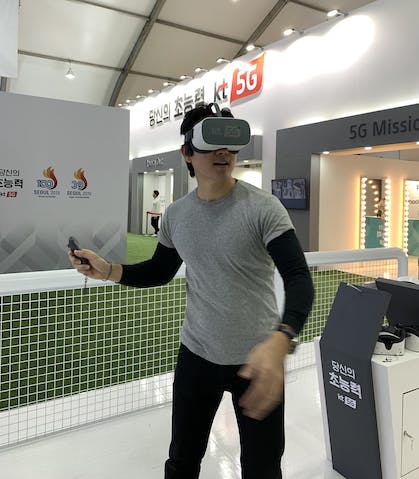I had just flown to Bangkok, a short one hour’s flight. Sounds quick right? But if you factor in driving to the airport, checking in one-hour beforehand, going through security checks, boarding etc. the total time is more like 2 -3 hours with the return trip taking 4 -6 hours; travel is always more time consuming than we realise. While aboard Thai Lion Air, I pondered to myself the future of travelling: Can we travel in a commercial rocket from Chiang Mai to Bangkok at 5,000 kilometres per hour in under 10 minutes? Not a chance. Not in my lifetime, unfortunately. The closest possibility, then, is meeting someone in Bangkok in the metaverse.
What is metaverse? Simply put, it’s an immersive 3D world, a matrix, where we meet others in our avatars. Instead of flying to Bangkok for a meeting, I can put on my VR headset and join the meeting virtually. My avatar could be Mickey Mouse and my colleague’s avatar Jesus Christ. And we could discuss in the meeting how we could break up Facebook’s monopoly (wink). Sounds cool right? Think of the Zoom application. Instead of staring at the computer screen (or smartphone), we enter the metaverse portal for a virtual meeting. But as good as it sounds, I’m skeptical. For an important meeting you want to see the other person face-to-face. Look him or her in the eyes. Read their body language. Establish unconscious bonding and trust. Evolution has given us powerful intuition and gut instincts to read others’ emotions and intentions. These are the things virtual meetings won’t give us. Moreover, the Metaverse’s privacy issues will dwarf what Facebook is facing now – by 100 times. You think Facebook ads are intrusive, wait till you inhabit the metaverse.
Thorny legal and ethical issues will be plentiful in the metaverse. Say your high school daughter has developed a romantic relationship in the metaverse. She then meets him in the real world and – alas – discovers he’s a 60-year-old pedophile wanted by the FBI. Or you engage in “digital sex” with a stranger and your wife finds out. A terrorist network recruits young impressionable men in the metaverse to carry out bombing. Protestors buying weapons in the metaverse to be delivered to their homes in the real world the next day. These are the stuff of nightmares for national security folks, and I often think in those terms the older I get.
Metaverse isn’t new. Back in 2013 the game Second Life was already at its peak with 1 million users. In Second Life, users use avatars to interact with others online, from watching concerts to buying virtual goods. It failed. Users flocked to Facebook to look at their friends’ dinner pics or their friends’ attractive female friends instead. Granted, the speed of the internet and the technological upgrades have increased since, allowing for smoother graphics and a better embodied immersive virtual experience. But is the progress rapid enough?

That said, many useful applications in the metaverse I can foresee are work-related. Pilots training in simulated flights in the metaverse, engineers building bridges, architects drawing up McMansions, medical students performing 3D surgery, as well as military training in the metaverse. Online gaming too will evolve. I am a fan of Call of Duty Black Ops Zombies – a first-person shooting game. Why shoot at the hordes of zombies with a mouse click when I can be in the zombie-infested world? (According to Chairman Xi Jingping where online gaming is “spiritual opium”, I’m considered an “online opium addict”.)
Back to Thailand. My American friend, who has never been wrong about which technology will flop, which will fly, reckons Facebook’s Metaverse will flop. Indeed, he has put his money where his mouth is by the high returns on his early shares in Apple. His only regret, he tells me, is not putting enough money on Tesla shares, which would make him a millionaire today. The starting price of an Oculus VR headset is $300. Can a billion people – Zuckerberg’s 2030 goal – afford the headset when they will be suffering from economic impacts of Covid19 for years to come?
Thai youths are easily wowed and seduced by new technology gadgets. My advice is don’t just wow at it – understand it. Understand its benefits and consequences. Understand the direction the technology is taking us. Will it separate or unite us?
There is one Zuckerberg. There are thousands of suckers born every minute.
Call me old-fashioned. I prefer a cup of real cappuccino (not digital cappuccino), a real book I can touch, and intelligent conversations with movers-and-shakers in person. Not in the matrix. At least for the foreseeable future.
